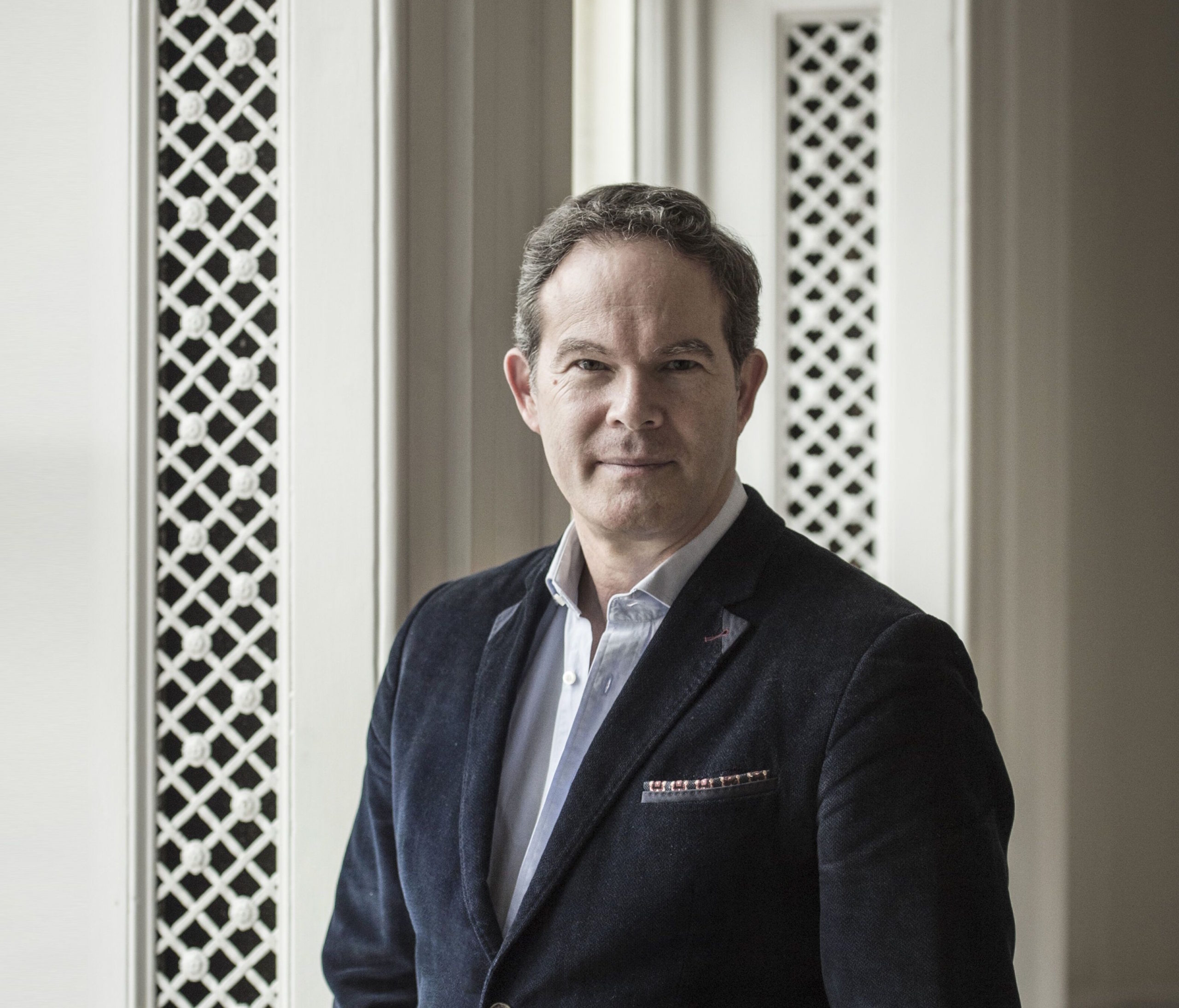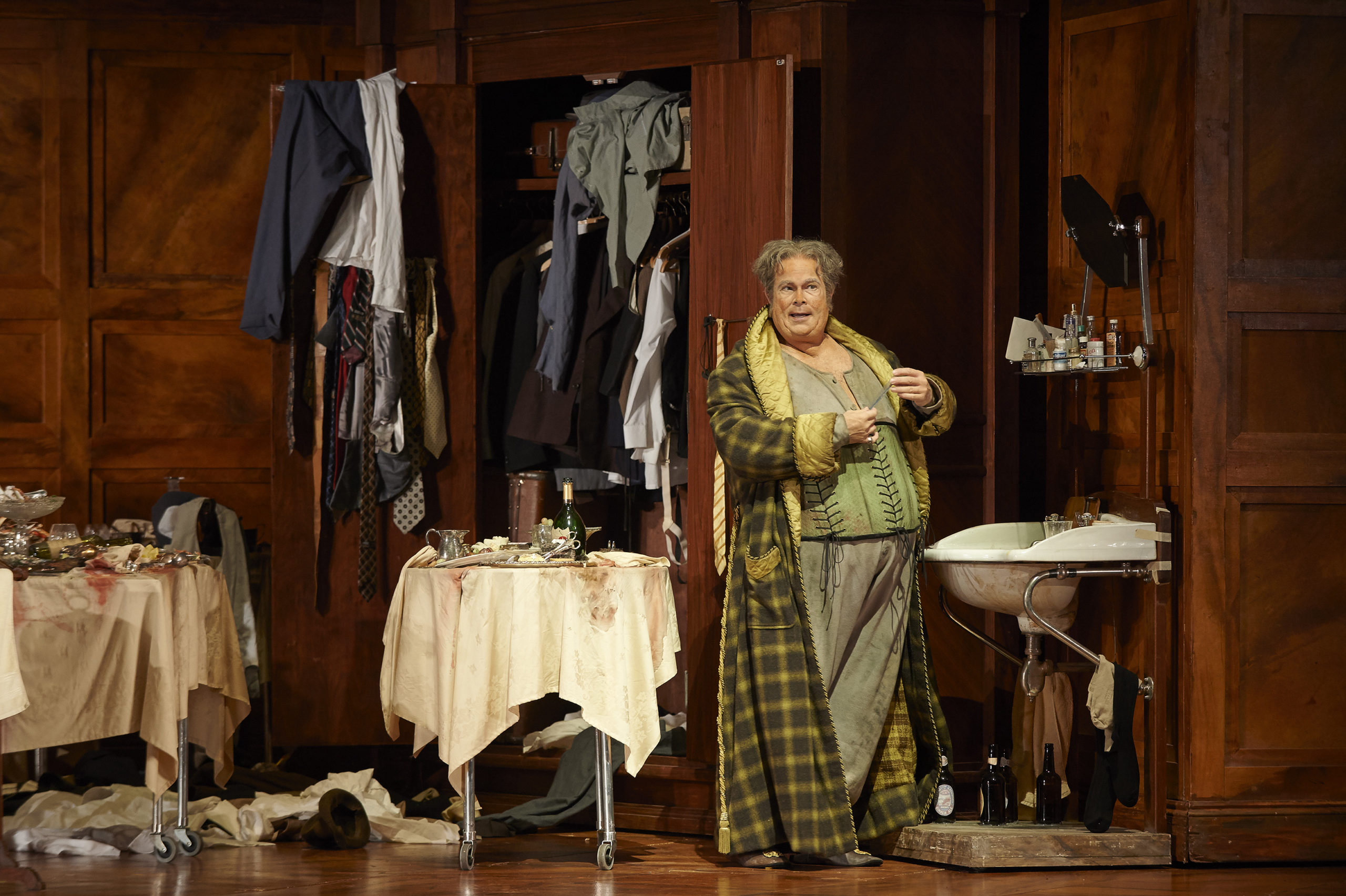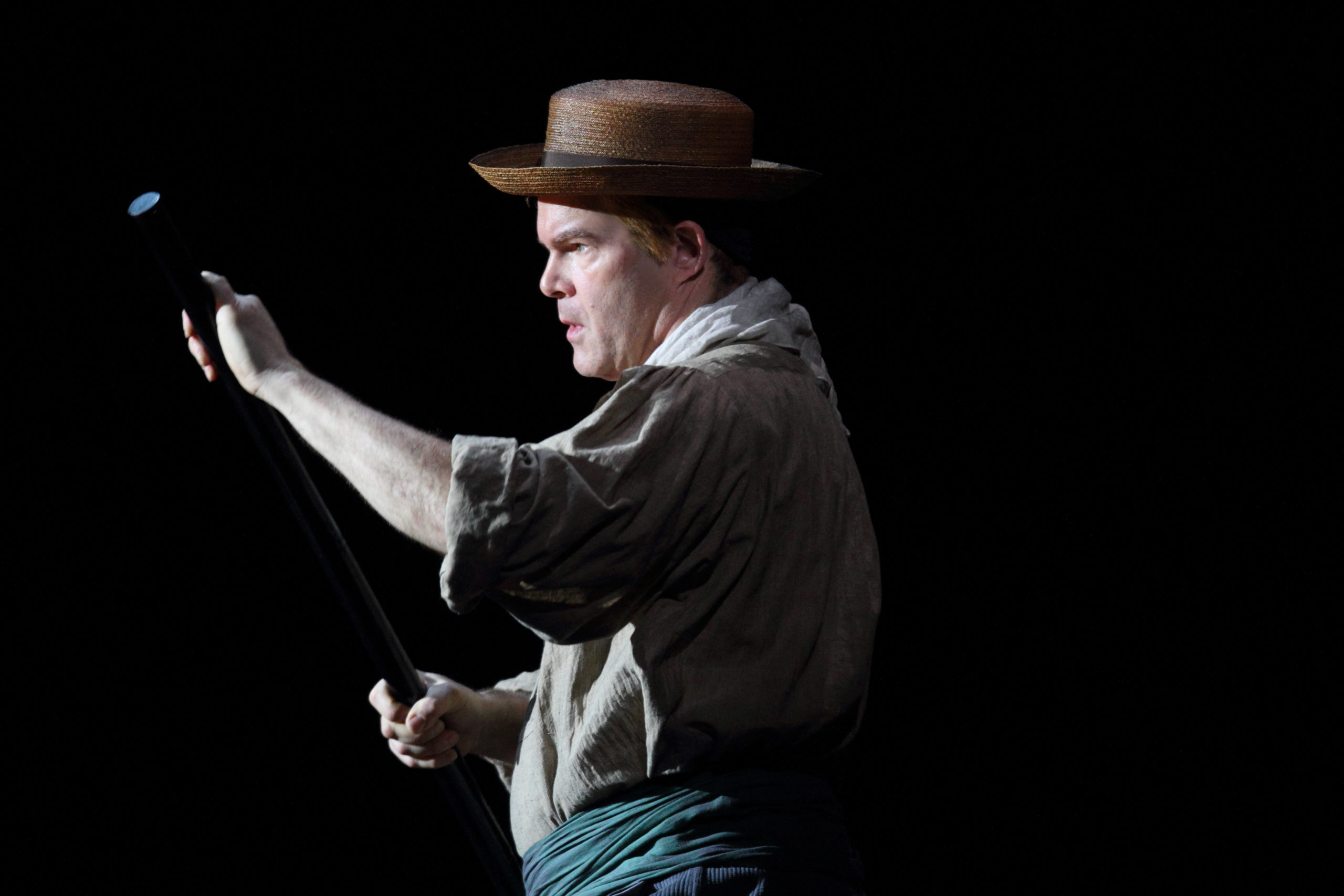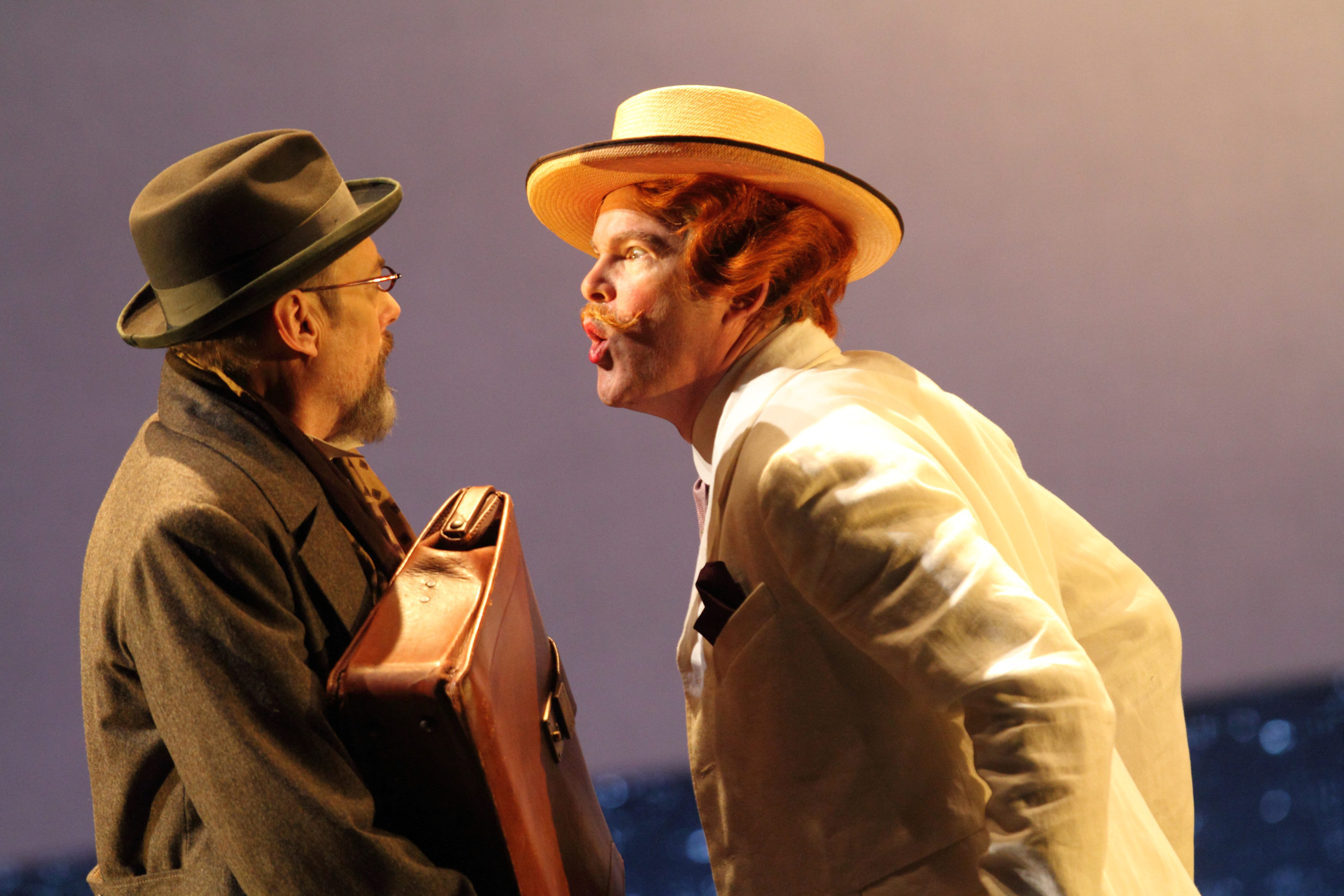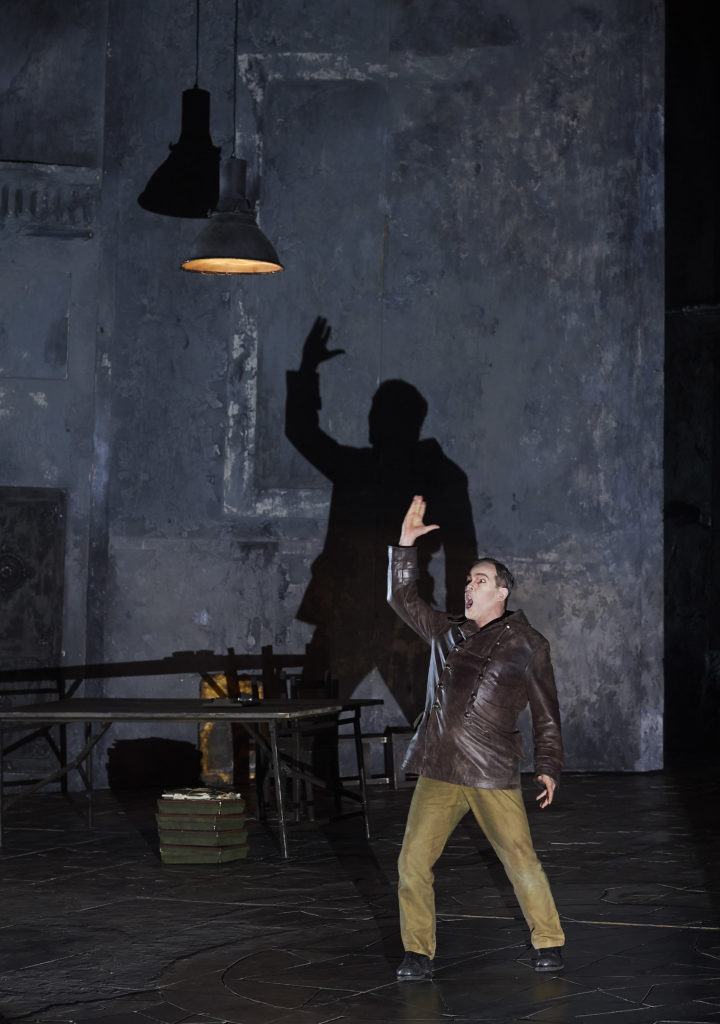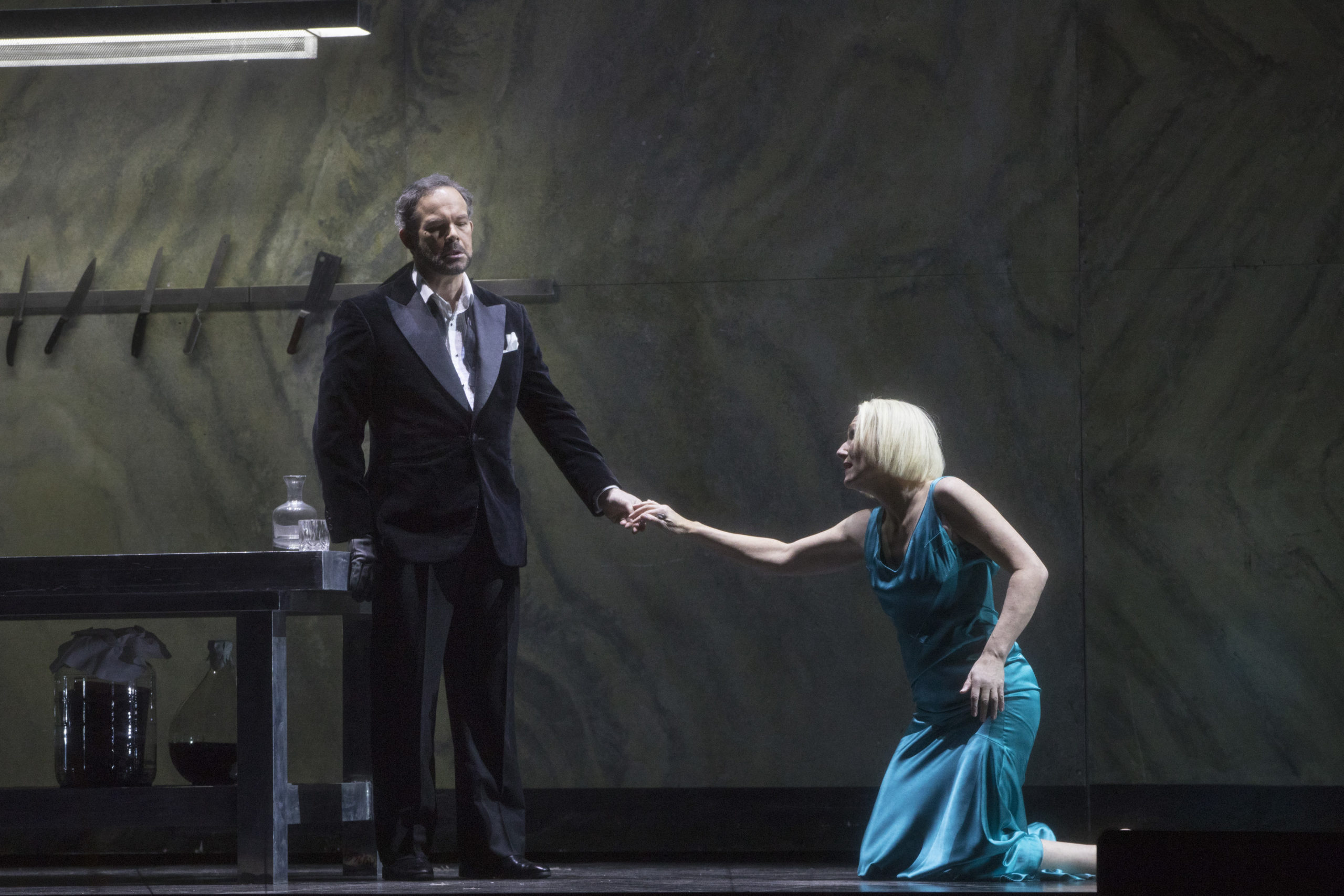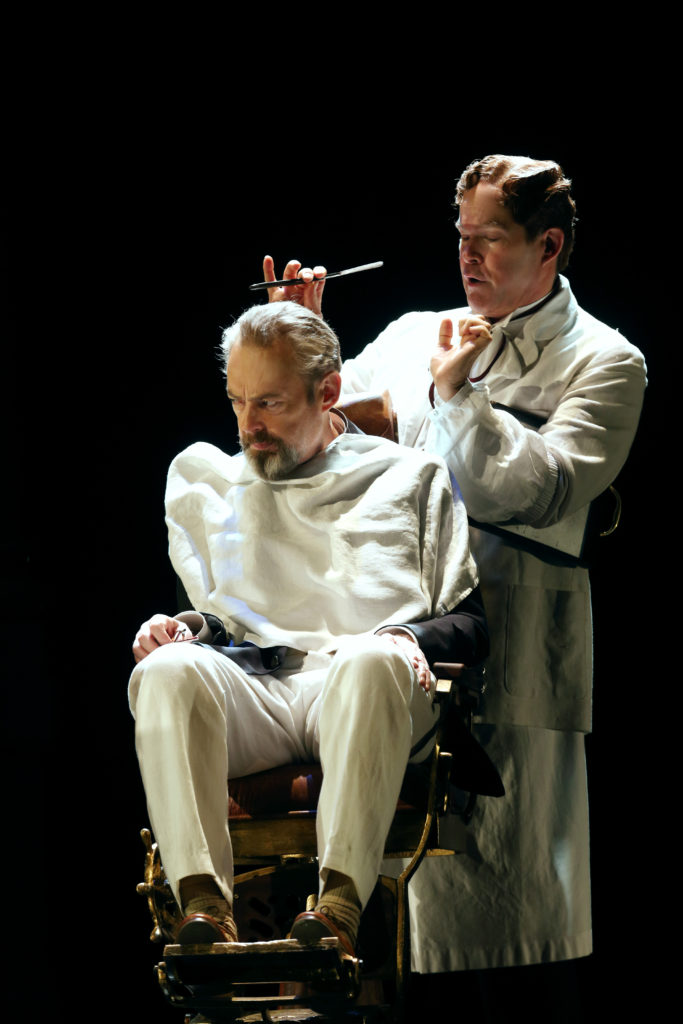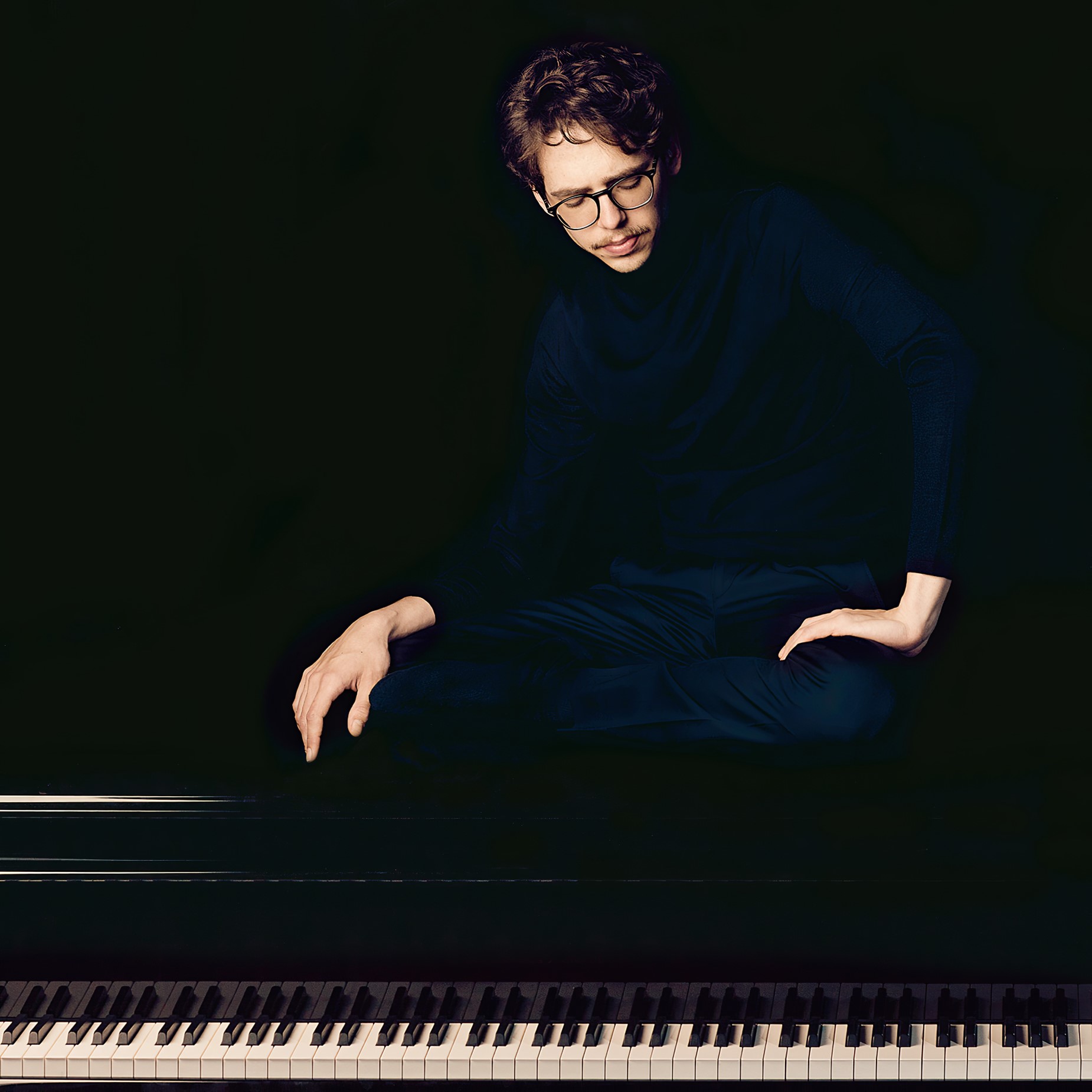
Photo: Felix Broede
The famous sonatas of 18th century composer Domenico Scarlatti are daunting, not only for their sheer number but for their demands. As Gramophone‘s Patrick Rucker observed, “pianists do well to think twice before recording this enticing but treacherous repertory.”
Scarlatti wrote 555 sonatas in all, though many were unpublished during the composer’s lifetime. As well as utilizing unique modulations and dischords, some of the sonatas were clearly influenced by Iberian folk music. Along with the sontas, Scarlatti composed operas, cantatas, and liturgical pieces, and counted fans among composers (Bach, Mozart, and Beethoven, but also Shostakovich, Messiaen, and Poulenc) as well as pianists (Horowitz, Gilels, and Schiff). The late American harpsichordist Scott Ross was the first to record all of the sonatas (across 34 CDs for Erato/Radio France) in 1988.
French pianist Debargue acknowledges Ross in the liner notes to Scarlatti: 52 Sonatas (Sony Classical), and also notes Ross’s influence on his own playing, but in releasing the work (in October 2019), Debargue must’ve known the challenges he would face. As Music Web International’s Richard Masters notes, “every piano-fancier has their champion of choice” for the sonatas.” Playing against preset favorites is always a risk, as any classical artist well knows, and yet Debargue is an artist who embraces such risk, and always has. The album is a continuation of a risk-taking drive that has been present ever since he burst onto the classical scene in 2015, his playing a deep and discernibly personal expression of an ever-evolving authenticity, to craft and to self.
His entrance into the classical music world is not the story you might expect, but it’s one that has directly influenced his approach. With no family or background in the industry, Debargue only took his first piano lessons at the age of eleven. As he told the Seattle Times in 2016,
I met a very nice pedagogue who was not trying to put me in a box and tell me what to do with a piano. She let me go my way. I was quite undisciplined and could not bear practice. For me it was absurd and I just wanted to play what I wanted to play.
Piano playing ceased in his teens, and Debargue instead went on to play in a rock band and work in a grocery store. He studied art and literature before returning to the piano at the age of twenty, attending the École Normale de Musique de Paris “Alfred Cortot”, a top French conservatory, and studying with famed Russian pianist and professor Rena Shereshevskaya, which he still does. Shereshevskaya’s opinion is one he very much defers to for her being “an authentic listener.”
In 2015 Debargue placed a controversial fourth place at the prestigious International Tchaikovsky Competition; many felt he deserved a higher placement, and that snobbery (related to his background, which included being self-taught) prevented his being awarded top honors. In any case, it hardly mattered; Debargue was invited by Competition Chairman Valery Gergiev to perform in the winner’s gala – in front of Russian President Vladimir Putin, no less. The French pianist has since attained much success, with non-stop rounds of touring, recording, and yet more awards, including an Echo Klassik (Germany’s major classical music award) in 2017. He’s played an assortment of great halls (including Wigmore, Carnegie, the Concertgebouw, the Philharmonie Berlin, Theatre des Champs Elysées, Munich’s Prinzregententheater, the Great Hall of the Moscow Conservatory, and the Mariinsky Theatre Concert Hall) and has worked with top artists including conductors (including Andrey Boreyko, Mikhail Pletnev, Yutaka Sado, and Tugan Sokhiev) and musicians (Gidon Kremer, Martin Fröst, and Janine Jansen). His discography includes recordings of the work of piano greats, including Chopin, Liszt, Ravel, Bach, Beethoven, and Medtner; he recorded a stunning album of the music of Schubert and Szymanowski in 2017. His most recent recording, of the carefully-selected Scarlatti sonatas, offers a very unconventional if highly inspiring listening experience, one which finds intellectual, emotional, and spiritual coherence through its various pedal-less ascents to grand harmonic vistas and gentle descents into valleys of varied tonal melody. Debargue’s rubato-infused playing is hypnotizing, heartfelt, intelligent, and intuitive.
I’ve written in the past about how certain pianists inspire my desire to return to the keyboard myself, and this disc is perhaps the most supreme encapsulation to date of that urge; Debargue’s gorgeously delicate if quietly confident Sonata in A Minor K. 109 (the 13th track on the first disc), for instance, is devastating in awful, awesome beauty, a whispering grandeur rustling through his delicious phrasing and touch. More than once I’ve hissed a happy “yassssss” listening to this, and to other tracks on this grand, sometimes overwhelming album. Richard Masters rightly notes in his review that this is not an album to be experienced all at once, but rather, savoured, “like a box of expensive chocolates,” with each of the three discs making up the album existing as their own sort of recital – its own little species of plant, which is possibly an appropriate reaction, as my conversation with Debargue revealed.
It wasn’t a surprise to learn that NPR rated Scarlatti: 52 Sonatas as one of their top classical picks in terms of albums that might best usher in a new decade, with writer Tom Huizenga noting Debargue’s “great self-assurance” and his ability to find “clarity, texture, and color” in order to coax “the mercurial personality in each of these miniatures, whether it’s the spirit of flamenco strumming, a tender aria or a boisterous march.” Currently on a tour that takes him to Toronto (on January 16th), Montreal January 19th) and New York (January 22nd in Brooklyn and January 31st at Carnegie Hall), Debargue and I chatted in the midst of a bustling festive season, in December 2019.
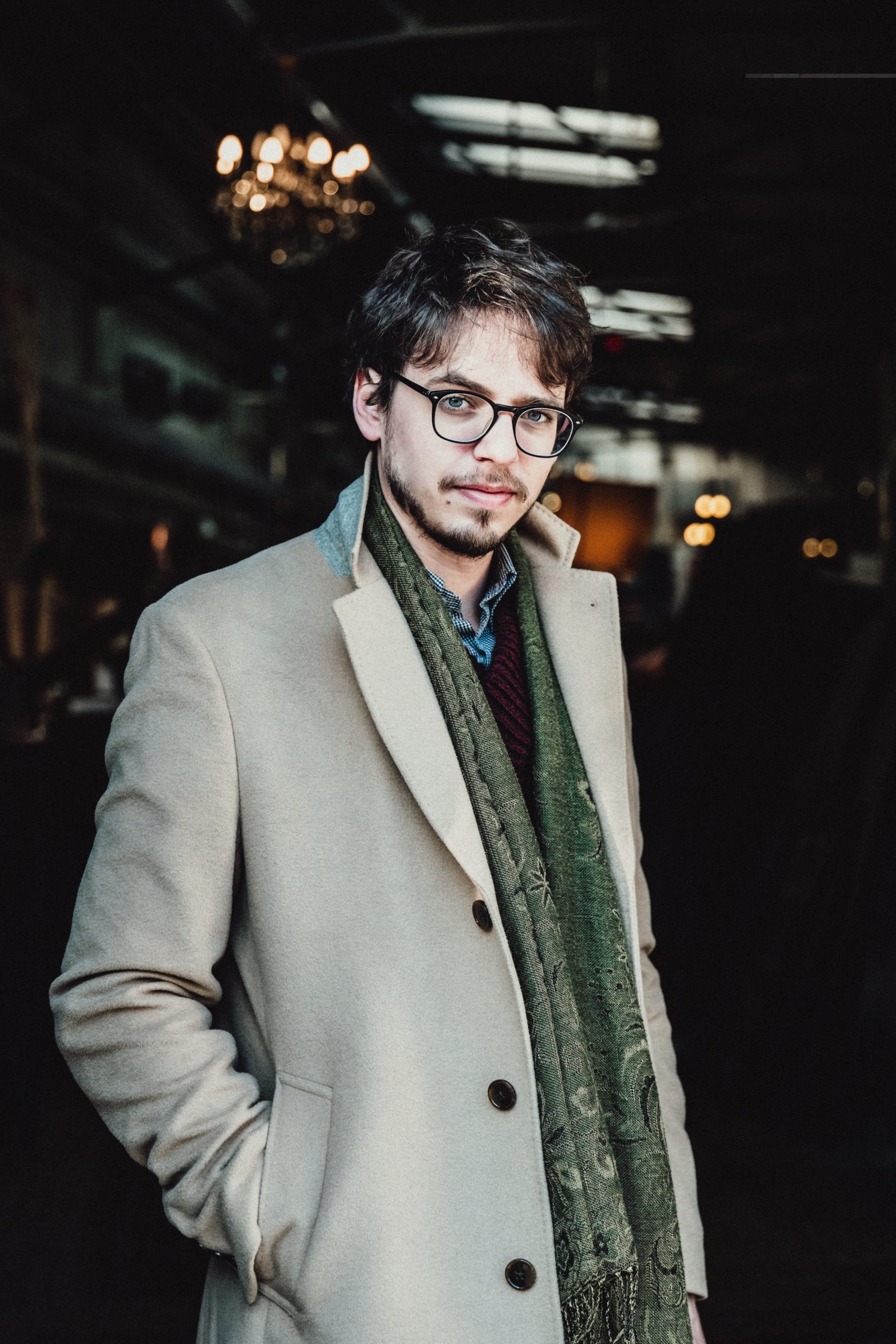
Photo: Xiomara Bender
You have said in the past you feel Scarlatti’s music is very psychological – what did you mean?
It’s because he plays with our consciousness. Music is language, and it’s playing with the connections you can make, not only between elements but surprising you, or confirming something you were expecting. He plays with the mind.
Fragments of the scores indicate Scarlatti didn’t write them himself…
Yes, the thing is that we only have so much information about Scarlatti, it’s hard to figure out how he managed to write those pieces, the copies are not in his hand, so someone copied this. We don’t have the draft from his hand directly, so it’s hard to figure out how it was originally made.
… but there’s a suggestion others copied down his improvisations. To me that echoes how your album sounds: very natural, very improvised.
It’s is one of my biggest interests – and this is part of the point of my approach also, an important part of my approach. Improvisation is probably the highest side of musical practice, and every piece I play I try to aim for improvisation – it has to sound that way. You can really be driven by the playing, because so often (these works) sound not like improvisation, and if you play them this way, you lose the energy of the music. And the energy of the music gives the presence, and the presence is expressed through the improvisation; it all goes together, especially for Scarlatti.
How does that translate into larger works? You worked with Tugan Sokhiev in December, for instance; how does this connection with energy and improvisation translate into an orchestral situation?
It’s not the same thing when there’s an orchestra; it’s less possible to improvise. The first thing is that it has to be very clear; for this reason you cannot really be free in time. For the Liszt Piano Concerto No. 1, I allowed myself to be free when I played alone – so during the Adagio, playing alone I just did what I wanted. But when it was with the orchestra, and you don’t play with this orchestra very often – I played only once before with the Orchestre National Du Capitole de Toulouse – this makes it more… for me the priority is to be attentive to the elements, to find some common points. It’s better to be more simple at the start.
If you collaborate again and again with an orchestra there are natural things that appear and it can be more flexible, but it requires time, and a lot of listeners and music lovers are not concerned about the time to takes. Even speaking about recital programs, a lot of people ask me, “What will you play in your next concert?” They don’t realize that a recital program takes at least one year to prepare. It’s not a question of being slow at memorizing – I’m fast at that, I can learn big pieces in one day or one week, but this doesn’t matter, there is nothing to admire here – what is important is the time it takes to actually raise it, as if you were growing vegetables or flowers. It takes time to make an interpretation exist, because it’s not only memorizing a score and playing the notes, it has to be like a living being, and the cultivation of a living being takes time.
The recital you’re doing at Koerner Hall features the music of Scarlatti as well as that of Medtner and Liszt; what was the thinking to feature these three composers on the same bill?
It’s not so easy to explain, but there is a connection. It’s very personal. I would not try to put a bridge between these pieces and explain intellectually why, but within these works there is a kind of energy in terms of how they’re crafted. Scarlatti and Liszt have a lot in common in terms of the ability to transcend the techniques of the keyboard in order to express their musicality – Scarlatti with harpsichord and Liszt with piano, but it’s the same thing, to use all possibilities of the instrument to go beyond, spiritually. And you will hear, between the Liszt and Medtner pieces, that there are lots of connections, speaking about the form, the theme… I think the two pieces go well together, like some kind of Faustian inspiration, these romantic, Gothic, cosmic dreams I would say, fantasies. They go very well together and are good with the Scarlatti. With recital programs I like to use the possibility of having two parts, so there is a big contrast between the first part and the second part; then the people can have the sensation having attended two concerts instead of one concert.
You’re also forcing audiences to listen.
For me, yes, because I don’t think the audience is stupid, I think the audience has the ability to listen, to be moved and participate in what is happening, so I play as if my audience will not be passive but active, and participating with me.
This idea of transcendence is interesting in terms of your background, which is not musical.
My little brother is a musician but there are none before – parents, grandparents, no one was involved in music.
So you transcended your own background being a classical pianist.
Yes, but I take things simply. For a lot of people it’s special to be a musician, but for me it’s normal. I try to live with it as if it was just my job and my vocation – I take it seriously, and I do it with all my heart, but it’s not this prestigious, elite thing that people should admire. For me it can stay very simple. I see myself… I don’t have the desire to transcend normal life with what I do, but for speaking this language, and for sharing this kind of spirit with others.
What do you think that desire has given you? Especially since you don’t hail from a background where you had parents involved and conservatory training from a very young age?
Of course everyone has a mental picture of child prodigies but most of the big masters of the piano, if we talk about the piano and masters like Gilels and Rachmaninoff, they were not child prodigies not at all, they took their time, and they were doing other things and had other interests. What I see nowadays with children is that they are just obeying teachers and parents, and I’m not interested in this way of practising and this vision of music. For me I cannot be inspired by such musicians, they cannot have something to say; they are living like in a jail. And it’s very important for an artist to get inspired by a lot of things, to have other outside interests – to see movies, to read books – to manage to have a human life. So many musicians allow themselves to have a special life because of being in music, but I don’t think being a musician is special, and I don’t think one can allow one’s self to live with a special regime just because he or she is a musician. You are a human first; then you may be a musician. But it can never replace being a human first.
There’s a tendency for many in this industry to ensconce themselves within the classical-world bubble, which seems obvious but also bad for art.
Of course it’s bad for art – but it’s the same for all the other fields. We live in an era of specialization; everyone is a specialist in his or her own field. And that’s a problem because then people don’t really know what others are doing outside of their own channel. We all should manage at least to have the real life of a man or a woman, and not be overwhelmed by the job, or by the need for an audience, or for fame, or money. Those things take so much of the space of the spirit … and it’s crazy, actually.
It kills the spirit of taking risks also, a spirit which is discernible on your recordings.
I do it because I have no choice – it’s my only way, the only one I can consider sincere and honest, and where I am doing my best. That’s why I follow this path – otherwise I’d do something else. To not be true to one’s self in the field of arts… for me it is like a betrayal, really, because where you have such a gift of being able to understand a language like music, you don’t have the right to betray this, or to put yourself or your ego ahead of that. No! You need to cultivate humility. I wonder what one can communicate if he’s not putting his ego aside and thinking about being humble and having music be a tool to being more open and human.
Few things make an artist more humble than doing recitals.
Yes, the recital is special — the solo recital is so special! There is something psychologically that is a bit insane, though; there are one thousand people attending the show, it’s a one-man or one-woman show, you are there for two hours, and you are the master of the time and the silence. It’s crazy if you think about it – it’s like a dictatorship, in a way! The people pay for being submissive to the atmosphere of one man or one woman for two hours; there is something not normal there, and it’s very important for me to feel it’s not normal. Before every recital I have these strong thoughts in mind: “What am I doing here? It’s not normal at all! This is insane! It’s crap!” And then the whole energy is to transform this crap situation into something nice, in which people are involved in a creative process, an expressive process. The aim is to feel better, for me and the people. And that’s a spiritual process.

